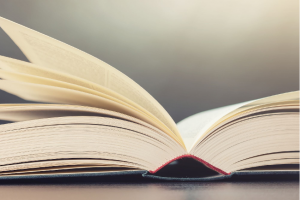We are pleased to present you with this special selection of novels throughout 2021. We hope they will inspire you!
Our intention is not to make a canon of the best novels that have been published during this year that is ending. But we do recommend a complete selection of titles that have passed through our editorial office and that, as readers, the EDUCATION 3.0 team has liked the most. In this list, you can find novels of the most varied literary genres belonging to both established writers and newcomers. To read!
The desired

What happens when you grow up in the midst of pain and lack of identity? How can you live in the mystery and restlessness of not having a story to tell? Maryse Condé, the winner of the Alternative Nobel Prize for Literature, answers these questions in a work that explores racial, cultural, and gender issues. A reference in Francophone Antillean literature, Condé delves into the story of three generations of island women united by the force of blood, abuse, and violence. Thus, readers will accompany Marie-Noëlle on a journey from the island of Guadeloupe to France and the United States, in order to unite the pieces of the puzzle of her identity. Written at a furious pace and under a strong feminist gaze, her pages address some of the author’s favorite themes: the tense relationship between colonized and colonizers.
Gem
After the great critical and sales success of ‘This will also pass’, the Catalan writer returned at the beginning of 2021 with this novel in which the daily life of a writer is shaken by the memory of Gema, a friend who died in her teens. A classmate who died of leukemia at the age of fifteen, one of the two deaths that marked her childhood de Ella; the other was her father’s de Ella, but he had lived a lifetime, while Gema left before her time de Ella. What existence would she have had? Who would she have become her? When did she last see her? Could you say goodbye to her? Why has your time diluted the memory of her dead friend of her? A novel about the past that we think we have forgotten but that haunts us, about the losses that mark us and the need to say goodbye.
The writer
The Icelandic writer Auður Ava Ólafsdóttir returned in 2021 with a novel with which she has won the Médicis étranger Prize, the Icelandic Booksellers Prize, and has been a finalist for the Icelandic Prize for Literature, and the Icelandic Women’s Prize. The protagonist of ‘The Writer’ is Hekla, a twentysomething who has always wanted to be a writer and decides to go live in Reykjavik in the early sixties. There she will work as a waitress and will share a home first with her friend de Ella Jón John, a homosexual man who desperately wants to work in the theater, and then with a frustrated poet with whom she has a romantic relationship. In a country of poets, where every house is full of books and there are more writers per capita than anywhere else.
Clara and the Sun
Kazuo Ishiguro’s first novel after receiving the Nobel Prize and in which he returns to science fiction. The narrator is the curious Klara, an AA (Artificial Friend) specializing in child care. She spends her days in a store, waiting for someone to buy it and take it home. While she waits, she contemplates the outside from the shop window, she observes the passers-by, their attitudes, their gestures, and their way of walking, and she witnesses some episodes that she does not fully understand. Klara is a unique AA, she is more observant and more likely to ask questions than most of her peers de Ella, very human questions: What awaits her in the outside world when she leaves the store and goes to live with a family? Does she have a good understanding of behaviors, mood swings, emotions, and human feelings? Ishiguro once again reveals his great power of storytelling, the exquisiteness of his prose full of nuances, and that unique ability to explore the essence of the human being, address important issues, and ask disturbing questions: What defines us as people? What is our role in the world? What is love?
February light
The American writer Elisabeth Strout (Portland, United States, 1956) returns in her latest novel to the character of Olive Kitteridge, whose work of the same name won the Pulitzer Prize in 2009 and which was adapted with great success into a television miniseries starring the actress Frances McDormand. ‘Light of February’ is a ‘kind’ of a second part about Olive’s experiences that can be read independently and in which the author tackles such important issues as love and loss, maturity and old age, longing, loneliness, or unexpected moments of happiness.
Hamnet
One of the novels of the year. Starting from the family history of Shakespeare, the English writer Maggie O’Farrell travels between fiction and reality to draw a hypnotic recreation of the event that inspired one of the most famous literary works of all time. Far from focusing solely on known events, O’Farrell tenderly vindicates the unforgettable figures who live on the margins of history and delves into the small big questions of any existence: family life, affection, pain, and loss. ‘Hamnet’ arrives in Spain after reaping enormous international success among critics and readers.
The Library of Paris
A captivating story about friendship and a tribute to the power of words and books that recreates life in the American Library in Paris, a bastion of knowledge and synonymous with freedom of ideas and which became one of the few windows open to culture during the German occupation during World War II. Thanks to the heroic work of the people who worked there, the prestigious institution never closed its doors and its funds continued to circulate despite the prohibitions of the Nazi leaders. The protagonist is Odile Souchet who, in 1939, has just made her dream of her come true of working in it, a place once frequented by great writers, in whose rooms one of the largest collections of universal literature is preserved.
You may also be interested in The fifteen best inspiring and self-improvement books





